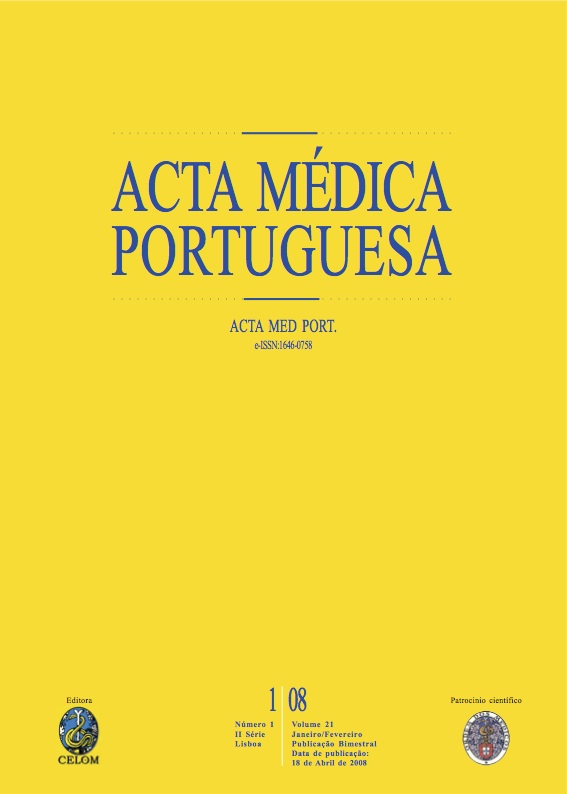Ingestão de macronutrientes e de etanol em adultos Portugueses.
DOI:
https://doi.org/10.20344/amp.764Resumo
The evaluation of nutrient intake is essential for the definition of health policies and as guidance for the establishment of factors, which could be involved in the occurrence of disease. The study aims to describe energy, nutrients and ethanol intake and the prevalence of inadequate macronutrient intake of Portuguese adults, by gender, age and education. We collected information on 2389 adults (61.6% of women), living in Porto, Portugal, selected by random digit dialling. Dietary intake was estimated by a validated semiquantitative food frequency questionnaire, covering the previous year. Nutrient intake data was obtained using the software Food Processor Plus, adapted to Portuguese foods. The prevalence of nutrient inadequate intake was established by comparison with the Acceptable Macronutrient Distribution Ranges of Dietary Reference Intakes: 10-35% (proteins), 45-65% (carbohydrates) and 20-35% (total fat). The average contribution of protein, carbohydrates, total fat and ethanol to the total daily energetic intake was 18.4%, 48.9%, 29.3% and 5.0%, respectively. The consumption of energy and macronutrients was inversely related with age and directly with education. The higher ethanol consumption was found among men with 50-64 years and less educated (= 4 years). More than 80% of the adult population of Porto reported an intake of protein, carbohydrates and total fat, according to the Acceptable Macronutrient Distribution Ranges of Dietary Reference Intakes. Total fat was the macronutrient with the highest prevalence of inadequate intake (17.1% in women and 21.0% in men).Downloads
Downloads
Como Citar
Edição
Secção
Licença
Todos os artigos publicados na AMP são de acesso aberto e cumprem os requisitos das agências de financiamento ou instituições académicas. Relativamente à utilização por terceiros a AMP rege-se pelos termos da licença Creative Commons ‘Atribuição – Uso Não-Comercial – (CC-BY-NC)’.
É da responsabilidade do autor obter permissão para reproduzir figuras, tabelas, etc., de outras publicações. Após a aceitação de um artigo, os autores serão convidados a preencher uma “Declaração de Responsabilidade Autoral e Partilha de Direitos de Autor “(http://www.actamedicaportuguesa.com/info/AMP-NormasPublicacao.pdf) e a “Declaração de Potenciais Conflitos de Interesse” (http://www.icmje.org/conflicts-of-interest) do ICMJE. Será enviado um e-mail ao autor correspondente, confirmando a receção do manuscrito.
Após a publicação, os autores ficam autorizados a disponibilizar os seus artigos em repositórios das suas instituições de origem, desde que mencionem sempre onde foram publicados e de acordo com a licença Creative Commons









